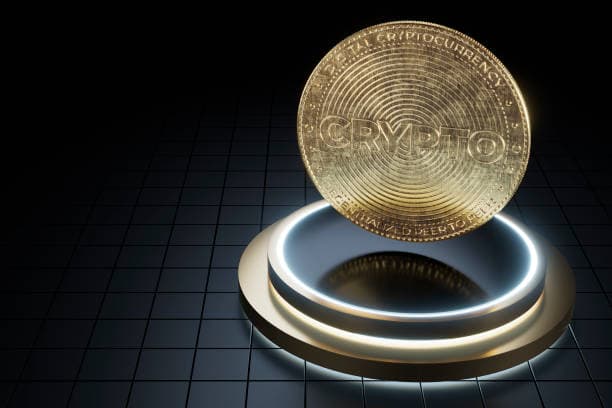In this article, we will bring you an in-depth understanding of Decentralized Exchanges (DEX) on Wave Chain. With the development of the cryptocurrency market, more and more users are choosing decentralized exchanges to trade digital assets, and Wave Chain, as a high-performance blockchain platform, provides many options for decentralized exchanges. These exchanges are not only decentralized, but also support multiple cryptocurrencies and have attracted a large number of traders because of their low transaction fees and high speed. In this article, we will introduce you to the major DEX platforms on the wavefield chain to help you understand the field more fully.

Characteristics of the decentralized exchange of the wave chain
The Wavefield (TRON) Chain is a blockchain platform featuring high throughput and low transaction fees at its core, designed to provide users with a faster, lower-cost trading experience. The Decentralized Exchange (DEX) of the Wave Chain thus offers similar advantages. The very nature of decentralization means that trading is not dependent on a central institution or platform, reducing the risk of a single point of failure and increasing the security of user funds. Due to the high throughput and low transaction fees of the market chain, these DEXs are often able to offer faster trade confirmation times and lower fees, which is a plus for active traders.
Decentralized exchanges on the wavefield chain also support cross-chain trading, enabling the exchange of assets on different blockchains, which provides greater flexibility for users. On these platforms, transactions are automatically executed by smart contracts and the transaction records are not tamperable, safeguarding the transparency and fairness of transactions.
Introduction to Major Wave Chain Decentralized Exchanges
There are several well-known decentralized exchanges on the wavefield chain that attract a large number of users and trading volume. These platforms not only offer common cryptocurrency trading, but also support a variety of token exchanges within the wavefield ecosystem. Here are a few representative DEX platforms.
TronSwap
TronSwap is one of the most popular decentralized trading platforms on the Wave Chain. It provides an easy-to-use interface that allows users to easily trade assets on the Wave Chain. tronSwap not only supports the trading of major tokens such as TRX (Tickets) and USDT (Tetcoin), but also supports many ERC-20 compatible tokens based on the Wave Chain. The decentralized nature of the platform ensures transparency and low transaction fees make it the preferred choice of many active traders.
JustSwap
JustSwap is another important decentralized exchange on the wavefield chain, it is a trading platform based on smart contracts, supporting the trading of various tokens in the wavefield ecosystem.JustSwap's operation is similar to that of Ether's Uniswap, with assets exchanged through the automated market maker (AMM) model. Users can trade assets and provide liquidity directly on the platform, and they can also get rewards for liquidity mining.
SUN.io
SUN.io is a decentralized financial platform launched by the WaveField Foundation, providing a wide range of services including decentralized trading, lending, stablecoin issuance, etc. SUN.io is also part of the WaveField Chain's Decentralized Finance (DeFi) ecosystem, which allows users to perform a variety of trading operations while enjoying the fast and low-cost trading experience provided by the WaveField Chain.
Strengths and Challenges of DEX in Wave Chains
The decentralized exchange of the wave field chain has a number of advantages, starting with the speed and low cost of trading. With thousands of transactions per second, shorter transaction confirmation times and very low transaction fees compared to other chains such as Ether, the wavefield chain has gained favor among active traders.
The DEX of the Wavefield Chain offers higher liquidity and more token options. As the Wavefield Chain supports cross-chain transactions with other blockchains, this means that users are able to exchange between different assets on the same platform, which greatly improves the convenience and choice of transactions.
The voltaic chain DEX still faces some challenges. For example, although the transaction speed of the wave chain is very fast, there is still a gap between its decentralization degree and that of Ether and other chains, which may affect the trust of some users who have higher security requirements. The ecosystem of the wave is relatively young, and the maturity of some DApps and services needs time to be verified.

How to choose the right wave DEX platform
The first factor to consider when choosing a decentralized exchange for the wavefield chain is the security of the platform. Although decentralized exchanges themselves offer a higher level of security, whether or not the platform's smart contract code is audited and whether or not there are any vulnerabilities is also a concern. Transaction fees are also an important consideration. Handling fees may vary between DEX platforms, and users should choose platforms that offer low transaction costs.
Liquidity and the choice of trading pairs is also a factor to consider when choosing a DEX. Some decentralized exchanges on the wave chain may have a richer selection of asset pairs, which is a plus for investors.
Frequently Asked Questions Q&A
Q1: Do decentralized exchanges on the wave chain support cross-chain trading?
A1: Yes, many decentralized exchanges on the wavefield chain, such as JustSwap, already support cross-chain trading, which means that assets on different blockchains can be exchanged.
Q2: Is it safe to use DEX on the wave chain?
A2: Decentralized exchanges in the wave chain have a certain degree of security guarantee on smart contracts, but users still need to pay attention to whether the platform's contracts have been audited and choose a trusted platform carefully.
Q3: How do the transaction fees for the voltaic chain DEX compare to other blockchains?
A3: Decentralized exchange fees for voltaic chains are typically lower and are significantly more favorable compared to other blockchains such as Ether.
These questions and answers will help readers to solve some common queries and provide guidelines for the future use of Wave Chain DEX. We hope that you can choose a platform that suits your needs and enjoy a more convenient and secure cryptocurrency trading experience after learning about Wave Chain DEX.














